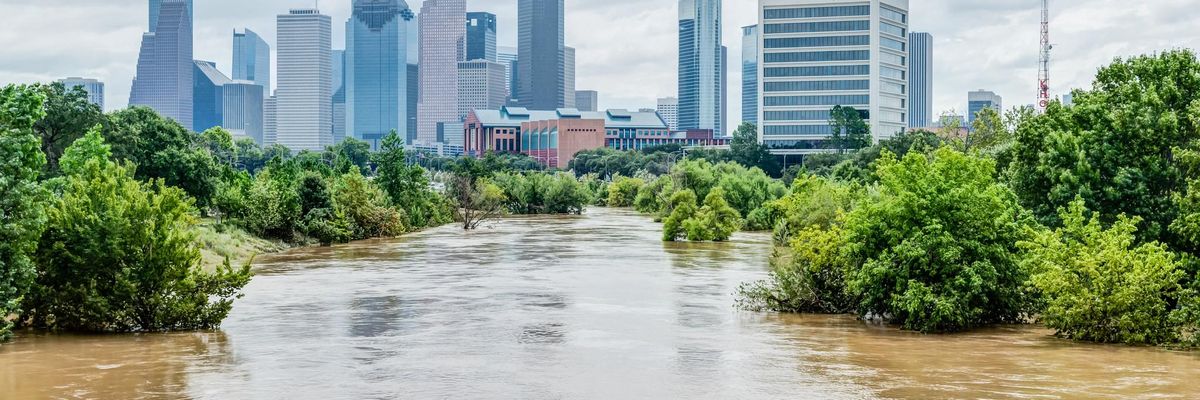While 56 percent of Americans and the Pentagon hold that the deepening climate crisis is a serious threat to the country's safety, President Donald Trump left the issue out of his speech on his national security strategy on Monday--angering critics and green groups.
"Trump is not just ignoring science and public opinion about the dangers of the climate crisis, he's ignoring American generals and the Pentagon about what it takes to keep our military and our country safe," said Michael Brune, the executive director of Sierra Club, in a statement released after the president's speech.
Trump has regarded the efforts of every other country in the world to combat climate change as an endeavor that would harm American businesses and jobs--despite reports of a burgeoning job market in the renewable energy sector. Even in the Appalachian region, long dependent on the coal industry, Americans have expressed interest in moving on from the dangerous and pollution-causing reliance on mining the earth's natural resources.
The president focused his speech on familiar points--touting his promised border wall, pushing the need to deter North Korea from developing its nuclear capability, and pledging to ensure that economic partnerships with other countries benefit the U.S. first and foremost
The Department of Defense has considered climate change to be a threat at least since 2015, when it released a report on its security implications, arguing that rising global temperatures and its impacts including drought and famine could "aggravate problems such as poverty, social tensions, environmental degradation, ineffectual leadership, and weak political institutions that threaten stability in a number of countries."
"If we want to keep our country safe, Trump should take military advice from the military, not fossil fuel executives who are pushing to deny climate science and boost their profits at any cost," said Brune.
In recent months, the devastation wrought by Hurricane Harvey in Texas and Hurricanes Irma and Maria in the Caribbean offered a clear picture of the direct security threats of climate crisis. As the globe becomes warmer, climate scientists say, hurricanes risk becoming stronger and more frequent, as they did this past season.
On social media, Trump critics and national security experts alike denounced the president's decision to ignore climate change as one of the nation's greatest threats.

